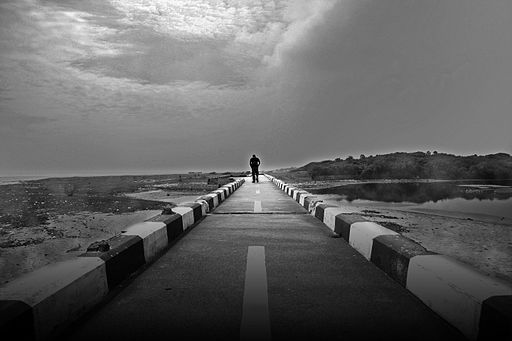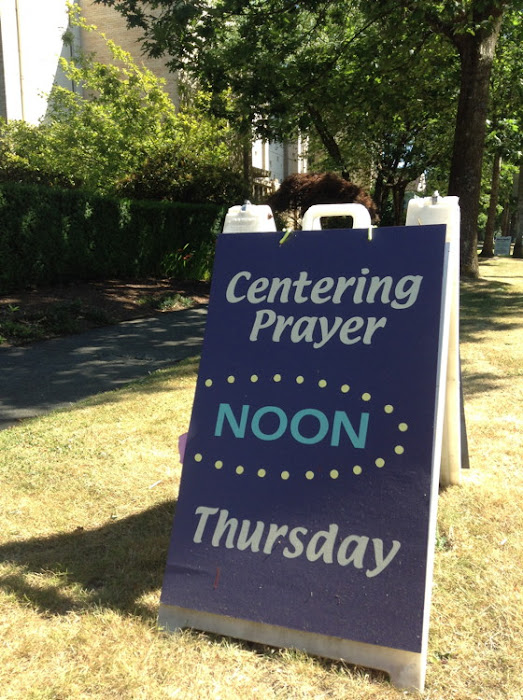Thursday, 31 August 2017
Founding Theory of Zen
Topics:
acceptance,
coprolite,
hermit practice,
paleontology,
Zen
Wednesday, 30 August 2017
WW: Headbone
(Cow skull found in pasture and hung on barn wall. A visceral human response I've commented on before.)
Thursday, 24 August 2017
Wednesday, 23 August 2017
WW: A hundred eclipsed suns
(We experienced a 94% solar eclipse here two days ago. I couldn't look at it because I didn't have any protective glasses, but I needn't have worried; in the event, the light turned the Japanese maple in the dooryard into a mass of pinhole cameras, projecting a hundred eclipsed suns on the entry tiles.)
Thursday, 17 August 2017
Just Because You Don't Exist Doesn't Mean You Can't Have Integrity
 Last week a reader posted a provocative question under Everything Doesn't Happen For a Reason:
Last week a reader posted a provocative question under Everything Doesn't Happen For a Reason:"If one is not seeking to avoid pain [under Zen]," he asked, "should one look both ways before crossing the street?"
I confess to a weakness for this kind of Jesuitical repartee, though Zen teachers are famous for screaming "Katz!" at, slapping, or throwing hot tea on those who attempt it. The impulse is honest; since such queries arise in the discursive mind – whose self-centred, dualistic viewpoint is suited only to housekeeping – indulging them can block insight. Anglophones call the result "can't see the forest for the trees".
However, this case addresses a pitfall common to spiritual pursuits – the tendency to confuse theoretical truth with operational – and I think it's well worth exploring.
First, a point of order: Zen students are not taught not to avoid pain; we're taught to accept pain as inevitable. But notwithstanding Zen monasteries manufacture it on an industrial scale, the Buddha did say that enduring avoidable suffering is worthless to enlightenment practice.
However, the underlying issue here goes much deeper than practice forms; it's nothing less than the nature of existence. And I'm pleased to report that science has finally caught up with Buddhism in one essential detail:
Nothing exists.
The Buddha of course knew nothing about particle physics. He drew his conclusions from simple observation of his surroundings, albeit with delusion-corrected eyes. Now, two and a half millennia later, physicists can explain why stuff appears to exist, while in fact not existing.
Since I'm not one of them, I'll just cleave to their hypothesis here: most, possibly all, of what we consider "matter" is actually a cloud of electrical charges in transitory association. This is basically the same insight the Buddha handed down (though again, he had no notion of electricity), but science has extended it infinitely: molecules are tiny solar systems of atoms, which are tiny solar systems of subatomic particles, which are tiny solar systems of smaller particles, and so on.
To bring this all home, here's a scientific assertion I recently encountered online:
If you removed all of the empty space from every person on earth, the amassed matter of our entire species would amount to the volume of a sugar cube. (And if your discursive mind is well-oiled, it's now asking: "How do you know even that matter exists?" Exactly.)
Right. So that's all spacey n'all, but what does it mean? Well, to perhaps no-one's surprise at this point…
Nothing.
Seriously. OK, so you're a cloud and so is your piano. Go run through it.
Go ahead. I'll wait.
With any good luck, no-one will have tried. Because even though neither you nor your piano exist, there are other rules in play. Such as the one that says your particles can't trespass in the electrical fields of piano particles, even though all the particles are mostly the same, and you and your furniture are mostly empty space anyway.
In other words, just because you don't exist doesn't mean you can't have integrity. (And if I had any business sense I'd be selling t-shirts with that on.)
The koanic literature contains a few parables on the dilemma of simultaneously existing and not existing. My favourite involves a monk who goes out on his begging rounds after learning that nothing he sees is really there. When a rampaging elephant comes stomping down the road (and really, who among us hasn't been there?) the loyal young student, fresh from dokusan, focuses his mind on the elephant's non-existence.
And is immediately trampled. He limps back to his teacher and complains loudly that the teaching is false.
The teacher sighs, and says:
Alright. Here is the whole truth:The monk confused theoretical truth (everything you see is a squirming splotch of promiscuously recombining particles, so whatever you think is there, isn't there) with operational truth (regardless of how temporary you and the elephant are, it hurts when one steps on you.)
Nothing you see is really there.
And when a stampeding elephant is bearing down on you, get out of its way.
And so, to accept my honoured reader's dharma challenge, I am bold to say:
Yes. One should look both ways before stepping into the street, unless one does not mind being creamed by a briefly-manifesting moving van.
At this point, some will ask: "What good is theoretical truth if it won't save you from being creamed by a slowly-dispersing moving van?"
Now that's a question.
(Photo of Namibian road sign courtesy of Wikimedia Commons and a generous photographer. You gotta respect the nation that posts "Mind the Paradox of Non-Existence" warnings along its highways.)
Topics:
Buddha,
Buddhism,
cloud,
Dharma,
elephant,
hermit practice,
impermanence,
koan,
monk,
paradox,
Zen
Wednesday, 16 August 2017
WW: Meditating Christians
(Was walking by the church I grew up in when I saw this sandwich board on the sidewalk outside. Centering Prayer is one of several Christian contemplation movements that are quietly but consistently gaining adherents. For my experiences in another, see this.)
Topics:
Christian meditation,
Christianity,
church,
hermit practice,
meditation,
Olympia,
Wordless Wednesday
Thursday, 10 August 2017
Right Religion

Faith is quiet.
Doubt is loud.
Faith is supple.
Doubt is rigid.
Faith is calm.
Doubt is angry.
Faith faults self.
Doubt faults other.
You must have faith to understand this.
Everyone says they have faith, but few do.
Skilful discipleship means distinguishing the faithful from the fearful.
(Photo courtesy of Vinoth Chandar and Wikimedia Commons.)
Topics:
Buddhism,
Christianity,
hermit practice,
Hinduism,
Islam,
Judaism,
Taoism,
Zen
Wednesday, 9 August 2017
Thursday, 3 August 2017
Everything Doesn't Happen For A Reason
 A few weeks ago a friend directed me to Everything Doesn't Happen For A Reason, by Tim Lawrence. It's attracted an enthusiastic following online, and since August has become the traditional time for Rusty Ring to address such topics, I figure this is my opening.
A few weeks ago a friend directed me to Everything Doesn't Happen For A Reason, by Tim Lawrence. It's attracted an enthusiastic following online, and since August has become the traditional time for Rusty Ring to address such topics, I figure this is my opening.Tim's central hypothesis – you gotta love writers who state their thesis right in the title – is also a primary Zen principal, but his objective trends rather more to the negative than affirmative.
Specifically, he's that tired of grieving people being told they're "suffering for a reason", that it's all part of some great compassionate plan, that "God never gives you more than you can handle."
"That's the kind of bullshit that destroys lives," he says. "And it is categorically untrue."
Preach, brother. The problem with the "everything happens for a reason" crowd, aside from their faulty analysis, is that they lay a giant trip on the injured, just when their resistance is low. Now they're dumb, weak – hell, even ungrateful – as well.
Tim goes on to finger the origin of this nonsense:
...our culture has treated grief as a problem to be solved, an illness to be healed, or both. In the process, we've done everything we can to avoid, ignore, or transform grief. As a result, when you're faced with tragedy you usually find that […] you're surrounded by platitudes.
…In so doing, we deny [sufferers] the right to be human. [My emphasis.]It's a hallmark of some worldviews to meet dukkha with weapons-grade denial. If you insist the Universe is ruled by a benevolent force, or that a given socio-political system is self-correcting, you'll immediately bang your skull on the titanium grille of the ever-oncoming First Noble Truth. Then you'll have to abandon all positive ends and exhaust your remaining intellectual capital on explaining why bad things keep happening in your Dictatorship of Infinite Good.
Therefore, for the benefit of all sentient beings, Ima say it right out loud:
Life is pain.
This is a direct result of the inescapable nature of existence. (Seriously. Don't try to escape it. That's a major source of pain. Second Noble Truth, for those of you playing at home.)
All of that is orthodox Buddhism – though Tim is an Anglican monastic. There is, however, one aspect of his programme that flirts with unskilfulness.
He's big into "letting people go".
Not that this isn't often an excellent idea. Good people tend to allow themselves to be abused, on the belief, inbred or inculcated, that they somehow deserve it, or that they owe it to others. Like other decent folks, I've suffered at the hands of those who took advantage of my patience and good will. I should have let those people go right off. Ideally before I picked them up.
However, like all weapons, this one is apt to wound its wielder, especially if overused. Thus Tim:
If anyone tells you that all is not lost, that it happened for a reason, that you’ll become better as a result of your grief, you can let them go.Seems a tad trigger-happy to me. I've often said useless things, maybe even hurtful ones, to people I authentically wanted to support. Problem was I didn't know what to say.
(Free tip from our Hard-Earned Insight Department: Sometimes you can't help. Sadly, the world is still awaiting the self-improvement book How to Help When You Can't Help.)
So let's not lose our humanity, here. When I've been in the worst possible shape, my capacity to remain human in the face of inhumanity has been tremendously gratifying.
Tim also loses me when he suggests that grief won't make you a better person. It damn well will, if you're determined that it will. As self-centred as I am now, I'm a buddha compared to what I was before. If recent politics prove anything, it's our moral obligation to suffer intelligently.
But of course it's not skilful to say that to someone in the throes of heartache. Instead, I try to offer tested survival tips from my own laboratory. And, since guilt and regret are key components of grief, I also bear witness to their decency. Psychopaths don't suffer.
Still, advising others is fraught. Often the best tack is just to accompany the sufferer in shared silence, accepting the person and the pain. Especially, to remember him or her actively. Call and text (that strange word again: "and"), visit, invite him or her out, break the isolation that's the warhead of both shame and grief.
Tim makes all these points, and others as well, in his timely essay. There's a reason it's been so well-received. Whether you're in pain yourself, or accompanying someone who is, give it a read.
(Photo of artist drawing Kanzeon, the Bodhisattva of Compassion, courtesy of Republic of Korea Ministry of Culture, Sports, and Tourism and Wikimedia Commons.)
Topics:
Avalokiteshvara,
bodhisattva,
Buddhism,
depression,
dukkha,
Four Noble Truths,
Tim Lawrence,
Zen
Wednesday, 2 August 2017
WW: Northern kelp crab
(Pugettia producta, in situ. This one is about two inches across. See a specimen in clearer context here.)
Topics:
beach,
invertebrate,
Puget Sound,
wildlife,
Wordless Wednesday
Subscribe to:
Comments (Atom)






